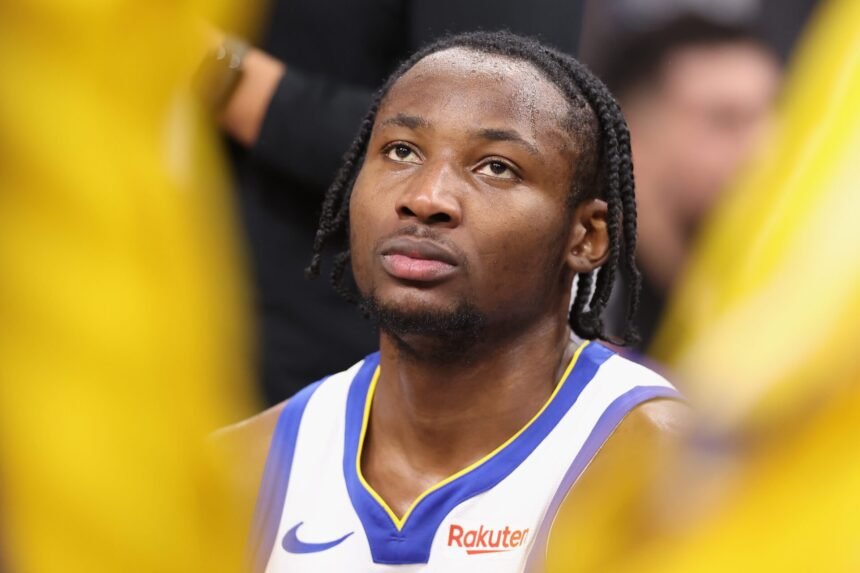Jonathan Kminga Saga with the Golden State Warriors continues to drag into August without a resolution.
Recent reports show that Kuminga has reduced the Warriors’ two-year, $45 million contract offer and maintains his stance on higher compensation.
Young Forward previously sought about $30 million a year, but it was well beyond Golden State’s current proposal.
Meanwhile, the Warriors rejected a sign-and-trade scenario between the Sacramento Kings and the Phoenix Suns.
The Warriors were not even interested in bringing former star Demar Derozan from the king in exchange for Jonathan Cuminga.
Beyond financial considerations, Kuminga’s rejection stems from concerns about the contract structure. The forward wants to avoid second season team options while looking for built-in non-trade clauses for destination control.
The long-term standoffs created a loss situation where both parties face serious shortcomings as the offseason progressed unresolved.
Forwards face significant financial risks by reducing $45 million with guaranteed compensation. While seeking higher annual value, there is no guarantee that other teams will meet his salary expectations or that the warrior will increase their offers.
His restricted free agent status has severely restricted negotiation leverage. Golden State will retain the right to match any offer sheet that Kuminga signs with another organization, preventing you from freely choosing your next destination.
The Warriors have shown a potential withdrawal from the sign-and-trade debate, forcing Cuminga to choose a binary between their offer and qualifying offers. This ultimatum removes alternative pathways to his desired outcome.
Accepting a one-year $7.9 million qualifying offer will offer unlimited free agency next summer, but represents a massive pay cut for the upcoming season.
Kuminga may not receive the liability that has expanded next season, regardless of contract status. His market value can stagnate or fall, without being characterized by increased play time and offensive opportunities.
The “betting on yourself” approach through qualifying offers creates a great deal of pressure to run at an elite level where guaranteed opportunities are limited. A decline in performance and injury will destroy the outlook for free agency in 2026.
The pursuit of other targets in the Golden State remains frozen due to Kuminga’s unresolved position. Reports say the organization paused Al Horford and DeAnthony Melton’s move while awaiting the resolution of the contract.
Delays spend valuable time in free agency and trade markets where quality players are increasingly fewer and fewer. The Warriors risk missing out on opportunities to improve their roster due to internal uncertainty.
Cuminga represents the important asset value that the Warriors risk losing due to inadequate compensation. Their reported indifference to available trade returns suggests unrealistic expectations of his market value.
If Kuminga accepts the qualifying offer, he will win a considerable trade veto that complicates the moves during the season. The Warriors will lose control of their destination, while receiving minimal economic benefits.
The most damaging scenarios include Kuminga making a qualifying offer and departing as an unlimited free agent in 2026. Golden State does not receive assets from former lottery picks developed over multiple seasons.
The results represent catastrophic asset management of an organization that invested considerable time and resources in the development of Cuminga. Losing him without compensation will undermine his long-term competitiveness.
The arrival in August will increase the pressure on both sides to reach a resolution prior to training camp. Extended delays further damage the parties’ positions and available alternatives.
Kuminga leverage continues to decline as few teams hold cap space or attractive trade packages. The Warriors face increased opportunity costs due to delayed roster construction and inactivity of free agents.
The standoffs create negative effects on both the Warriors offseason planning and the Kuminga career trajectory, while neither party benefits. A solution requires serious compromises from both sides to avoid catastrophic consequences.


